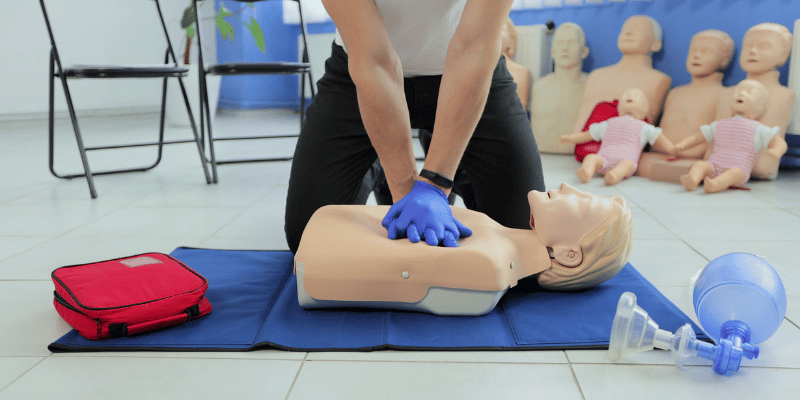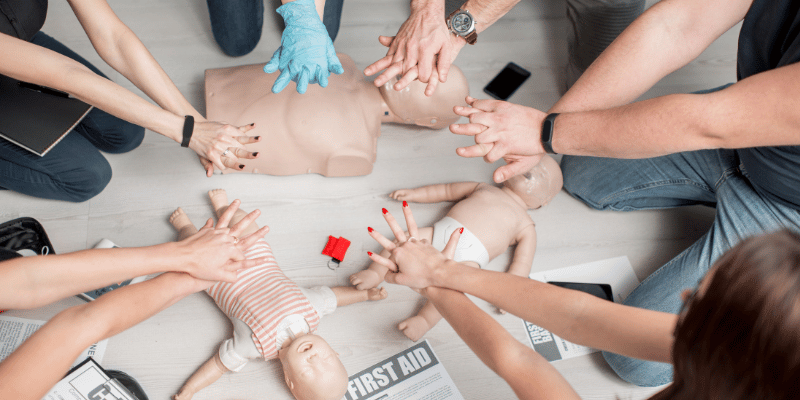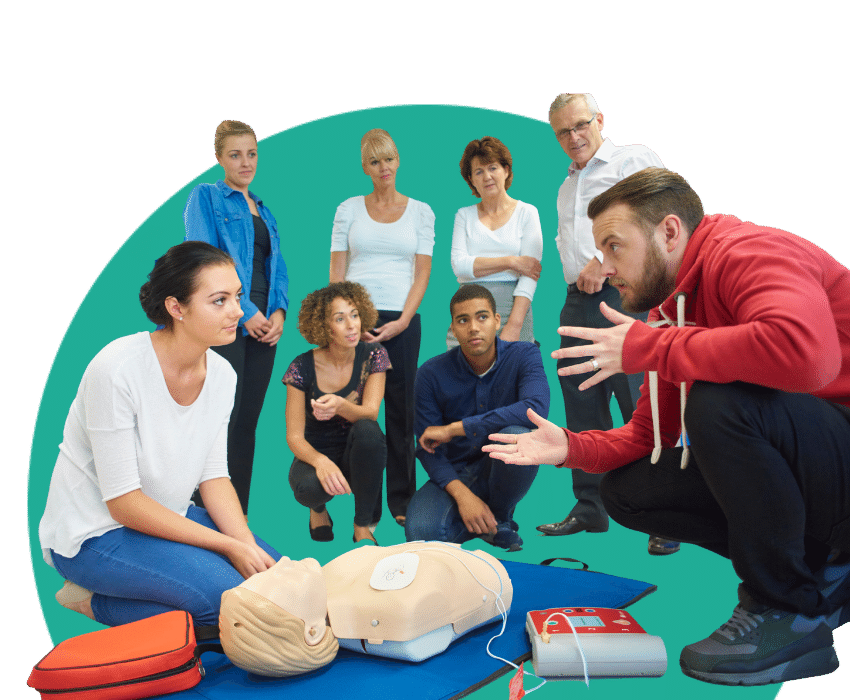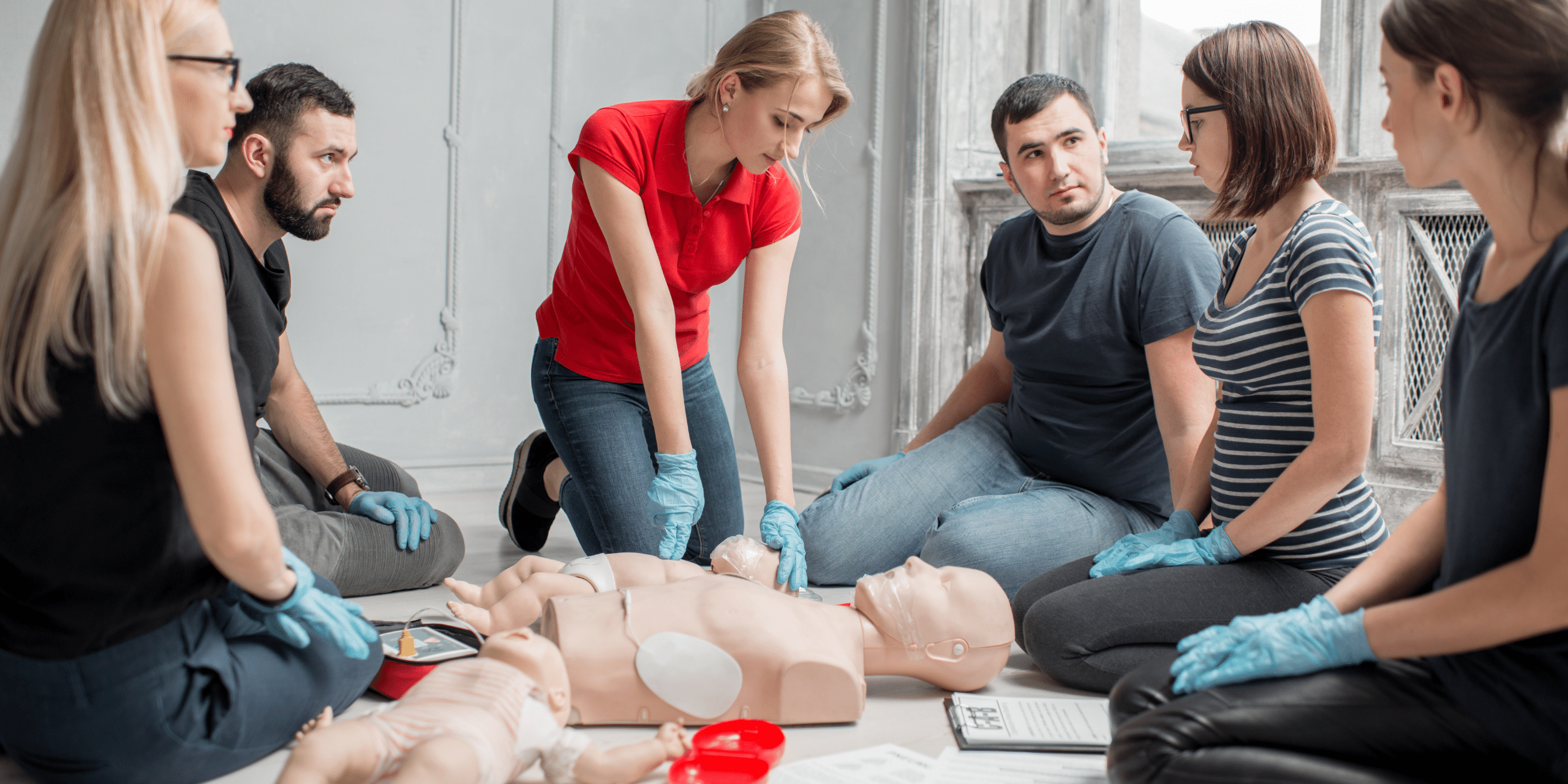The email came through on a Monday morning…..”do you remember the video you showed us on our training”…..”and thanks to the training you delivered that day in my school, I saved the life of a man in cardiac arrest…..”. This email came from a head teacher who had remembered the training he had received and then put it into practice when the time came. It blew me away and highlighted to me just how important first aid training can be.
I have also been told stories from participants who have been faced with people in cardiac arrest at work, who have experienced poor outcomes due to lack of knowledge. For example a practitioner once told me that while working in a pharmacy a man had collapsed and fallen downstairs and no one had been equipped with the knowledge of what to do in the event of an emergency. Unfortunately, the outcome on that occasion was a little less positive.
Importance of high quality first aid training

Good training should be interactive and teach and assess your skills. It should also equip you with the knowledge of how to use equipment, and where to access it. A good trainer will ensure that the correct knowledge is shared and that the learners have the confidence to act in an emergency.
No one can ever predict what might happen in a work place on a day to day basis. People can go years without ever experiencing anything of significance at work, and then one day out of the blue they are faced with a sudden collapse. These are the times you need to be prepared for. Especially if you work in an environment where you work face-to-face with people. Perhaps people who may be unwell in the first place.
According to the Resuscitation Council UK, 15% of cardiac arrests happen in the workplace and 72% in the home. Research has shown time and again that prompt action in the event of a cardiac arrest saves lives.
As a manager, investing in regular training, whether first aid or basic life support (BLS) helps to ensure that your staff are prepared to respond in the event of an emergency. I have witnessed personally on my own update training how people can forget skills which they have been taught on several previous occasions. Cost can of course be considered as a bit of a barrier which may be a bit off putting, but it should never detract from quality training.
What are the requirements for first aid training?

There is of course a requirement for businesses to undertake a First aid needs assessment (The Health & Safety Executive [HSE]), have a nominated first aider and a first aid kit as a minimum in order to follow health and safety requirements.
Clinical staff and support staff, according to the Resuscitation Council UK’s Quality Standards, are required to attend at least annual BLS updates in order to keep their skills fresh. Training should be an ongoing investment by any employer, as guidelines are updated regularly and skills can get rusty.
Tips for preparing for emergencies
There are a few factors which will ensure that as a manager, your staff are fully prepared to respond to an emergency:

Good quality First aid and BLS training should include practical skills assessment. Simulation is encouraged to learn to deal with human factors in critical situations. Learning CPR can be supported by the use of smartphones, tablets, apps and social media.

Knowledge of where to access the necessary equipment in an emergency, as well as how to use it. This includes things like first aid kits and AEDs (Automated External Defibrillators).

Regular checks, for example, in hospital settings the crash trolley should be checked daily to ensure it is stocked and ready for use should the need arise.

Regular servicing of the equipment you have. This will ensure that it will be fit for purpose should you need to access it. There is little use having an AED if the battery is flat when you come to use it. If your AED were ever to be used then it would need servicing before it can be put up for use again.

Policies and procedures for all staff to follow. The Resus Council has a lot of useful downloadable resources which you can access. These can even be displayed in clinical areas to serve as a handy reminder. Things like how to call for help and how to record incidents that occur.
In summary

The power of comprehensive first aid and BLS training cannot be overstated. These stories from practice help to act as crucial reminders of the consequences of being ill-equipped and underscore the critical importance of regular, high quality training to ensure staff are prepared to handle whatever challenges may arise.
Would you like to find out about the training we can offer?
Whatever training you may wish to access, Health Academy are able to offer a wide range of Basic Life Support and First Aid training solutions to meet your organisation’s training needs.

We can provide training via any delivery method from e-learning, virtual via zoom to face-to-face practical sessions. Delivered by experienced trainers these can be arranged to meet your needs. Why not get in touch to book your training today?




